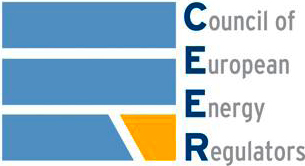
ACER/CEER - Progress made and challenges ahead for EU gas and electricity market integration, see annual report
- Wholesale price convergence is increasing in both the electricity and gas markets in Europe, which is an indication of greater integration
- However, efforts are still needed to transfer these benefits to European energy consumers
- Barriers detected and measures proposed
Today, the Agency for the Cooperation of Energy Regulators (ACER) and the Council of European Energy Regulators (CEER) presented their first market monitoring report in Brussels. Its findings strongly support the core messages of the Commission’s Communication on the Internal Energy Market.
Wholesale price convergence is increasing
According to ACER’s Director, Alberto Pototschnig, “Increasing price convergence is a clear sign of progress towards market integration and greater competition. Transferring the benefits of the single internal energy market to final consumers is the challenge we are now facing.”
From wholesale to retail – the consumer must benefit
Wide variations in household prices persist among Member States, even between those featuring similar retail market frameworks. In 2011, average retail prices ranged between 8.5 and 29.4 euro cents per kWh for electricity and between 2.8 and 11.7 euro cents per kWh for gas.
The report provides further analysis of retail regulatory frameworks: most Member States still maintain regulated prices for gas (15 countries) and electricity (17). The analysis also shows that supplier switching generally remained low in 2011.
CEER President and Chair of ACER’s Board of Regulators, Lord Mogg, said, “Of central importance to the success of the Internal Energy Market is that efficient and competitive markets translate into real benefits for consumers. This is why CEER, working closely with BEUC the EU consumer organisation, has developed a 2020 Vision of the energy sector which puts smaller customers first.”
Barriers detected and measures proposed
According to the regulators, the growing penetration of electricity from renewable sources – the production of which cannot be entirely predicted – and remaining bottlenecks in the European electricity network are two of the main reasons for the increased level of unplanned flows at several EU borders. These flows reduce the cross-border capacity that could be offered to the market and might threaten security of supply. ACER proposes immediate measures to address electricity network bottlenecks, to ensure the more efficient use of gas capacity, and points out important gas tariff transparency issues.